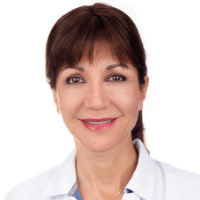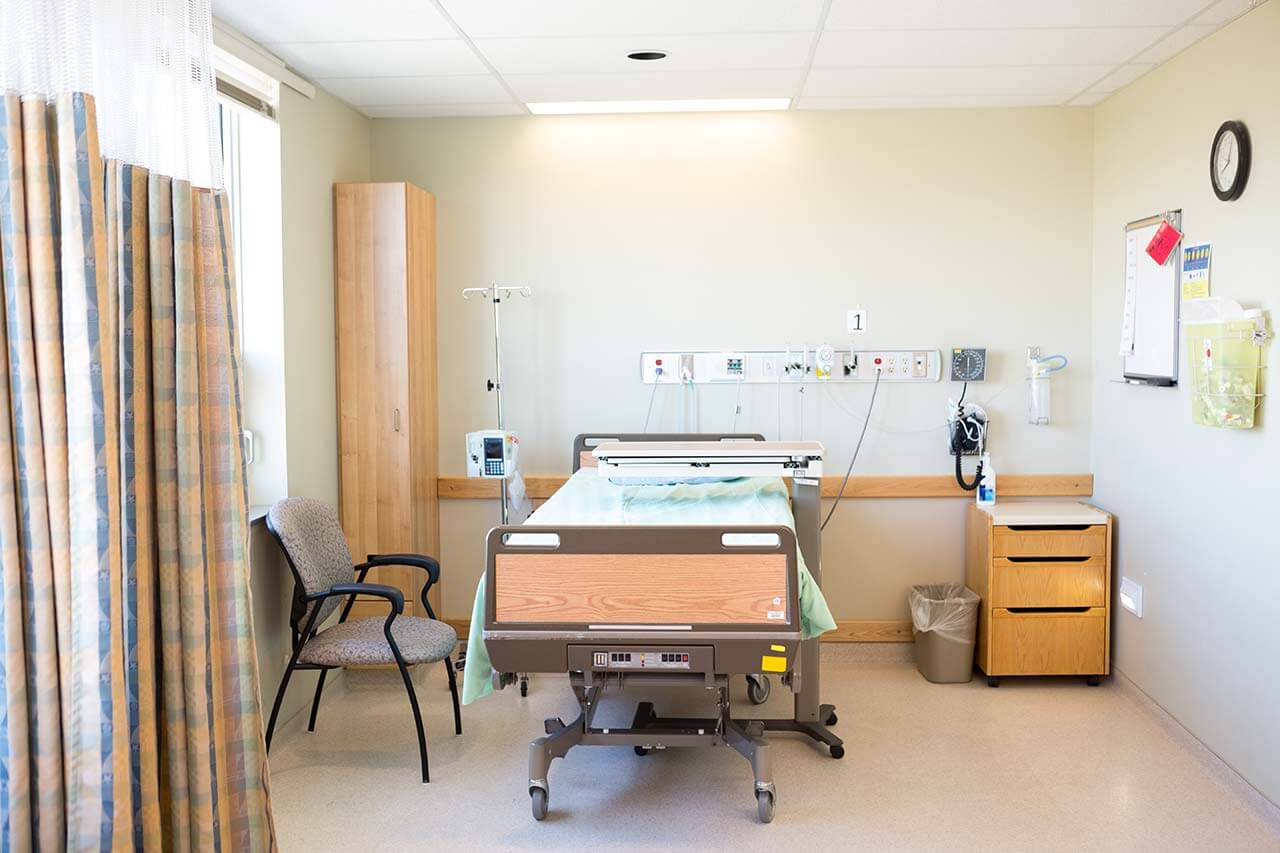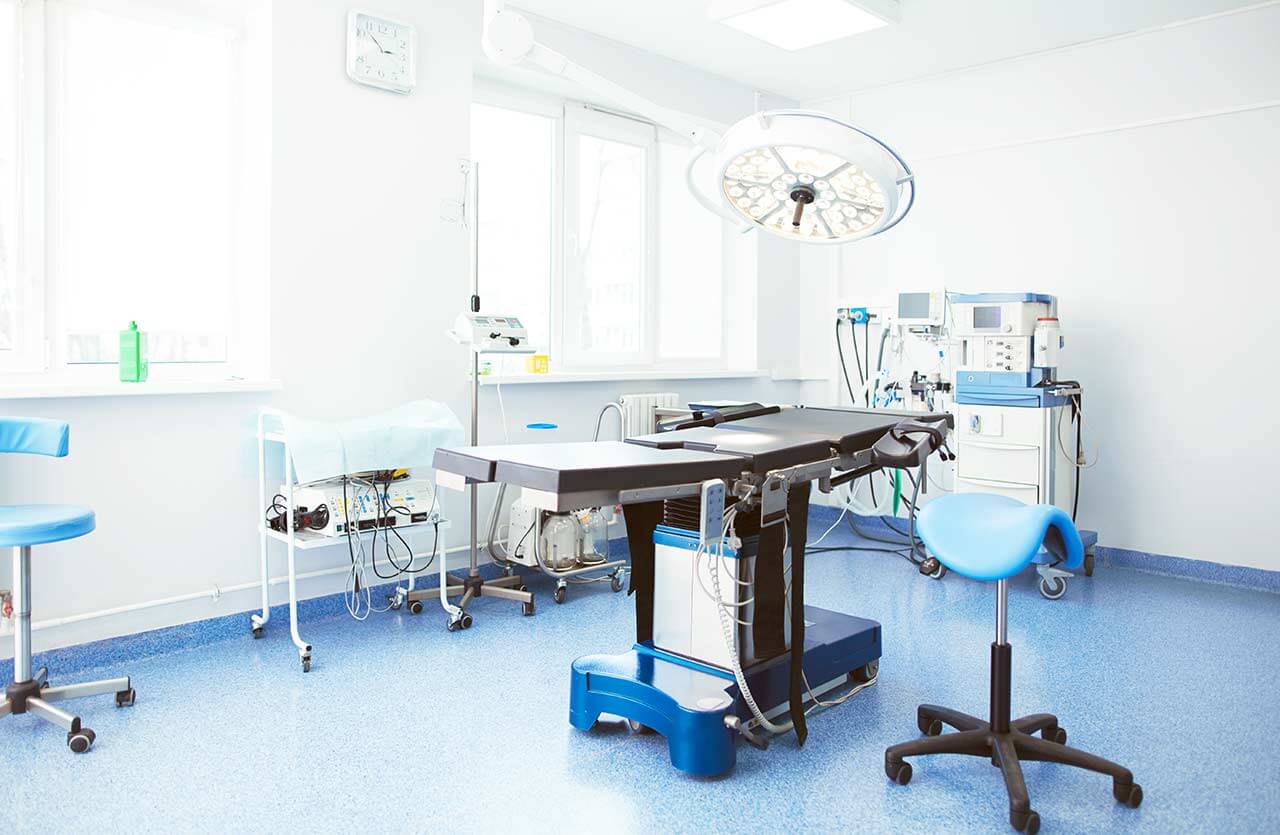
The program includes:
- Initial presentation in the clinic
- clinical history taking
- review of medical records
- physical examination
- x-ray of the hand
- nursing services
- consultation of related specialists
- consultation of the chief physician and all leading experts
- development of individual treatment plan
- written statement
Required documents
- Medical records
- X-ray of the affected region (if available)
Service
You may also book:
 BookingHealth Price from:
BookingHealth Price from:
About the department
The Department of Plastic, Reconstructive and Aesthetic Surgery, Hand Surgery at the Academic Hospital Schlosspark Berlin offers the full range of services in these fields. The surgical options of the department include facelift procedures, nose and eye reshaping procedures, as well as breast surgery in women. The department's specialists devote a lot of time to counseling patients prior to surgical interventions, they also use innovative 3D systems for modeling the expected result. The operations are performed in state-of-the-art operating rooms with all the necessary equipment. The Chief Physician of the department is Dr. med. Viola Moser.
Reconstructive surgery deals with the correction of congenital anomalies, as well as aesthetic and functional defects caused by accident or surgical treatment of tumors. The standard treatment is a tissue and skin transplantation. Flap surgery, implantation of expanders and other techniques are also widely used in the department.
The department is proud of its outstanding results in aesthetic surgery. It successfully performs such surgical procedures as facelift, eye lift and correction, nose, ear, lip reshaping procedures, etc.
In addition, hand surgery is an essential component of clinical practice. Of particular interest is the treatment of tunnel compression syndromes, Dupuytren's contracture, tenosynovitis, hand joint lesions, including rheumatism, tumors, etc.
The department's surgical service range includes:
- Facial plastic surgery
- Surgical removal of eyelid tumors
- Surgical removal of benign and malignant soft tissue tumors
- Facial scar revision
- Surgical treatment of facial injuries
- Facial aesthetic interventions
- Interventions on the nose and lips
- Ear reshaping
- Ectropion treatment
- Interventions for chronic migraines
- Plastic surgery to correct congenital malformations
- Correction of congenital breast malformations (for example, tuberous breasts, breast asymmetry, inverted nipple)
- Correction of everted ears
- Removal of birthmarks
- Correction of hand malformations (for example, syndactyly)
- Aesthetic surgery
- Face lift
- Eyelid lift
- Functional and aesthetic nose surgery
- Ear reshaping
- Chin reshaping
- Lip reshaping
- Treatment of wrinkles
- Breast augmentation, reduction and lift
- Liposuction
- Abdominoplasty
- Arm lift (brachioplasty)
- Hip lift
- Buttock lift and augmentation
- Hyperhidrosis correction
- Labiaplasty
- Reconstructive plastic surgery
- Treatment of burns and other soft tissue injuries
- Radical removal of bone and soft tissue malignancies
- Treatment of bedsores in bedridden patients or patients with limited mobility
- Treatment of leg ulcers in chronic venous insufficiency
- Scar revision and burn correction
- Burns of various types (thermal, chemical and others)
- Surgical scars
- Keloid scars
- Cicatricial contraction accompanied by functional impairment
- Breast surgery
- Breast augmentation, reduction and lift
- Removal of nodular formations
- Surgical treatment of breast cancer
- Breast reconstruction
- Correction of breast malformations
- Correction of inverted nipples
- Correction after previous breast surgery
- Hand surgery
- Treatment of chronic hand diseases
- Tunnel compression syndrome (for example, carpal tunnel syndrome, cubital tunnel syndrome)
- Dupuytren's contracture
- Tendovaginitis
- Degeneration of small joints of the hand
- Rheumatic hand lesions
- Hand tumors
- Septic hand surgery
- Treatment of infectious lesions of soft tissues and bones (abscess, osteomyelitis)
- Hand injuries
- Complicated injuries of bones, soft tissues and tendons of the hand
- Hand fractures
- Injuries of the peripheral nerves and blood vessels (microsurgery using a surgical microscope)
- Treatment of chronic hand diseases
- Other surgical options
Curriculum vitae
Qualifications
- Board certification in Plastic and Aesthetic Surgery.
- Since 2005 Head of the Department of Plastic, Reconstructive and Aesthetic Surgery, Hand Surgery at the Academic Hospital Schlosspark Berlin.
- Since 2006 Head of the Department of Plastic, Reconstructive and Aesthetic Surgery, Hand Surgery at the Academic Hospital Schlosspark Berlin.
Clinical Focuses
- Blepharoplasty.
- Interventions on the breast in women.
- Intimate plastic surgery in women.
Memberships in Professional Societies
- Association of German Aesthetic Plastic Surgeons.
- German Society of Plastic, Reconstructive and Aesthetic Surgeons.
- German Society for Aesthetic Plastic Surgery.
- International Society of Aesthetic Plastic Surgery.
Photo of the doctor: (c) Schlosspark-Klinik GmbH
About hospital
The Schlosspark Hospital Berlin began its work in 1970 and, during this time, has gained an excellent reputation not only in Germany but also in the international medical arena. The Schlosspark Hospital Berlin is an academic hospital of the Charite University Hospital Berlin, which is one of the best medical centers in Europe and throughout the world. The successful clinical practice of the medical facility is based on an advanced medical and technical base, access to the very latest and most effective treatment methods, and the exceptional competence and experience of medical personnel. The hospital is located in the picturesque Charlottenburg Park, away from the hustle and bustle of the city, which contributes to the peace of mind of patients.
The hospital's bed fund includes 340 beds. Structurally, the hospital consists of 12 specialized departments with narrowly focused centers integrated into them, which are responsible for the treatment of a particular group of diseases. More than 14,000 patients are treated annually at the hospital. One of the priorities of the medical facility is emergency medical care. With an annual number of more than 10,000 surgical interventions, including operations of high complexity, the department is particularly interested in surgical treatment.
The hospital's medical team consists of more than 900 employees. The departments at the hospital are headed by professors who are well-known in the medical community and have impressive clinical experience and outstanding professional achievements. In the course of diagnostics and treatment, an individual approach is used for each patient, and his needs and wishes are also taken into account. The hospital pays due attention to patient care during the therapeutic process. Despite state-of-the-art medical equipment and the automation of many processes, a humane and respectful attitude towards the patient is the first priority for the doctors at the hospital. The specialists are always open to dialogue and do their best to achieve the best treatment outcomes.
Photo: (с) depositphotos
Accommodation in hospital
Patients rooms
The patients of the Schlosspark Hospital Berlin live in comfortable rooms with light colors. Each patient room has an ensuite bathroom with a shower and a toilet. The standard patient room includes a comfortable automatically adjustable bed, a bedside cabinet with a pull-out table, a wardrobe, a table and chairs for receiving visitors, a telephone, and a TV. Wi-Fi is available on the territory of the hospital. The hospital also offers enhanced-comfort rooms with a more exquisite design.
Meals and Menus
The patient and their accompanying person are offered three meals a day: breakfast, lunch, and dinner. A new menu is prepared for patients each week. Only high-quality and fresh products are used for cooking meals. The menu includes dietary and vegetarian dishes. The patient will be offered an individual menu if necessary.
There is a cozy cafe on the ground floor of the hospital that serves full breakfasts, a wide range of hot and cold drinks, delicious desserts, and snacks.
Further details
Standard rooms include:
Accompanying person
The accompanying person may stay with you in the patient room or at the hotel of your choice during the inpatient program.
Hotel
You may stay at the hotel of your choice during the outpatient program. Our manager will help you choose the best option.




